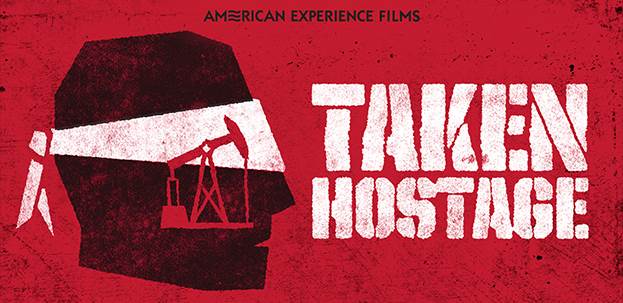“We are in a position in this country where inflation is fraying, a recession is looming, much like it was in 1979,” said American Experience executive producer Cameo George during a TCA press conference to promote the four-hour two-night TV event “Taken Hostage,” premiering Tuesday, November 15th, at 9/8c on PBS. “Hostages or detainees are still being used as political pawns. We see the situation with Brittney Griner. She is certainly by no means a political prisoner, but the negotiations are playing out in some ways in the media, and it's sort of striking.” It seems that some things never change, which is why this story deserves to be told in 2022.
“Taken Hostage” takes a cinematic approach to the story of the Iran Hostage Crises, focusing on a handful of people with first-hand experience, including hostage Barry Rosen and his wife Barbara. “The story of the Rosens is really the heart and soul of this film,” explained director, writer, and producer Robert Stone. “I was very fortunate to be able to persuade them to open their lives and their personal archives to us and to allow us to tell their story. Barry has done a lot of public speaking on this. Barbara really hasn't spoken about this since it happened, so I think it was more difficult for her. They really opened their hearts to us. What I was trying to do with this film by keeping the cast to just really focused on six people who you see through the entire course of this story we're telling, to make it personal, to take you in like a narrative fiction film would, where you follow a character through this ordeal, and we see both sides of it with the Rosens. Not only do we have extraordinary coverage of Barry's experience in Iran, including footage that was shot by the hostage-takers themselves that was smuggled out of Iran and used in this film, but on Barbara's side, the fact that she lived in New York City, media capital of the world, she became a sort of central focus in this insane media frenzy that took place and had to balance wanting to use the media to keep the story alive so her husband would not be forgotten and to try to use that attention she was getting to get access to Jimmy Carter.”
“My husband was the first BBC correspondent to open a bureau in Iran, and we lived there together for two years between '72 and '73,” shared Hilary Brown, the first female foreign correspondent for ABC News who covered the Iran Hostage Crises for the network. “I depended enormously on my camera crews, and I regarded them as brothers,” Brown revealed about the risks of reporting on the story as a woman. “They didn't want to see women out covering demonstrations, which is what we were doing. And I did have a very close call, actually, in western Iran shortly after the hostages were taken. I thought I was going to be torn limb from limb. I was surrounded by an all-male mob, and they just mauled me. Fortunately, I was able to get out. It was quite difficult as a woman. And you learned that you got to try to keep a low profile in situations like that, try to just not be too visible, if that's possible. It didn't work for me because I'm almost 6 feet and blonde. At the time we did not cover our heads, which, looking back on it, it was stupid. We should have done that.”
“This was the first televised foreign policy crisis that the United States had ever gone through,” explained Gary Sick, who appears in the film and served as a senior member of President Carter’s National Security Team. “People were getting this feed into their living rooms day after day after day. That had an impact. And we take that for granted today, but that was something brand-new. We also forget that this was really the first contact the United States ever had with political Islam. It was a new thing. Most of us had never really heard of this before or never took it seriously; that basically an Islamic group could take over and run a country with clerics. That was not something that had happened before… Those are both things that we have become accustomed to, but which really started there.”
From the current state of affairs between the U.S. and Iran, to how the media reports on these matters, “Taken Hostage” is not only the story of the Iran Hostage Crises but also how it shaped the times we’re in. You can see Part 1 on Monday, November 14th, and Part 2 on Tuesday, November 15th, at 9/8c both nights on PBS, part of American Experience.

